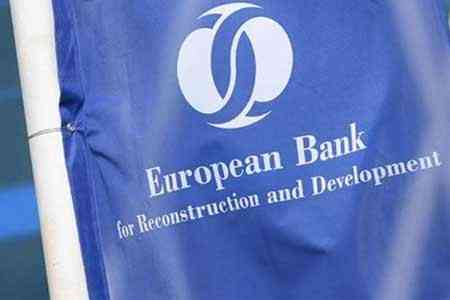


ArmInfo. In 2020, the volume of operations of the European Bank for Reconstruction and Development (EBRD) in Armenia amounted to a record 160 million euros, of which about 93% falls on the private sector. The head of the Yerevan office of the Bank Dimitri Gvindadze stated this at the 18th regular meeting of the Council of Small and Medium Enterprise Development held today.
Presenting the dynamics of the bank's operations in Armenia, the head of the office noted that the EBRD is very interested in supporting a private sector-state partnership, which, in turn, should contribute to the development of private entrepreneurship.
Deputy Prime Minister of the Republic of Armenia Tigran Avinyan, speaking at the Council, stated that 2020 has become an extremely critical year for Armenia. The pandemic and the war in Artsakh had a devastating effect on the economy and socio-economic life, in connection with which the economic year ended with a decline in GDP by 7.5%, which cannot but have social consequences.
"The past year has made more obvious the deep problems that have accumulated and generally characterize the economic system of our country. In particular, this is the low competitiveness of the economy, insufficient level of technological development, hence the low ability to withstand force majeure circumstances, lack of flexibility in adapting to situations. These problems are also expressed in the sector of SMEs.
In addition to rethinking this reality, there is a need to rethink economic policy in accordance with existing problems. In this context, industrialization, technological modernization and gaining competitive positions in international value chains should be at the core of increasing the competitiveness of small and medium- sized enterprises, "Avinyan said. In this regard, he noted the importance of the implementation of the points outlined by the head of government on February 4. On this basis, Avinyan noted, the government approved the "Economic Response Program and Action Plan", the essence of which is to stimulate economic activity in the next six months and provide conditions for growth. The program includes regular consultations with the private sector, with the help of which the government will try to identify the problems of the economy and begin to find their effective solutions.